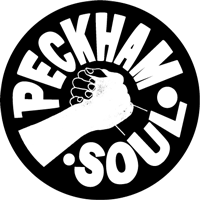Red
1981 UK pressing in beautiful condition.
The sophomore release from the third and most successful incarnation of Black Uhuru (singers Don Carlos, Erroll "Jay" Wilson, and Rudolph "Garth" Dennis had come before), Red spotlights the singing talents of then rising star Michael Rose, American-born Sandra "Puma" Jones, and original member Derrick "Duckie" Simpson. Backed by the tight and dancehall-era defining Sly & Robbie band, the trio reels off eight high-quality reggae cuts here, including classics like "Youth of Eglington" and "Sponji Reggae." Filled with Rose's astute lyrics, the album provides an engaging blend of steppers rhythms and social commentary. Sly & Robbie's ingenious mix of sophisticated roots reggae and a variety of modern touches (synthesizers, electronic drums) not only brought Black Uhuru widespread fame but, along with Henry "Junjo" Lawes and Prince Jammy's contemporary productions, also helped define the slicked-up last stand of roots rhythms in the first half of the '80s, while foreshadowing reggae's coming digital age.
1981 UK pressing in beautiful condition.
The sophomore release from the third and most successful incarnation of Black Uhuru (singers Don Carlos, Erroll "Jay" Wilson, and Rudolph "Garth" Dennis had come before), Red spotlights the singing talents of then rising star Michael Rose, American-born Sandra "Puma" Jones, and original member Derrick "Duckie" Simpson. Backed by the tight and dancehall-era defining Sly & Robbie band, the trio reels off eight high-quality reggae cuts here, including classics like "Youth of Eglington" and "Sponji Reggae." Filled with Rose's astute lyrics, the album provides an engaging blend of steppers rhythms and social commentary. Sly & Robbie's ingenious mix of sophisticated roots reggae and a variety of modern touches (synthesizers, electronic drums) not only brought Black Uhuru widespread fame but, along with Henry "Junjo" Lawes and Prince Jammy's contemporary productions, also helped define the slicked-up last stand of roots rhythms in the first half of the '80s, while foreshadowing reggae's coming digital age.










